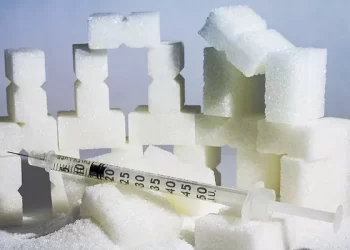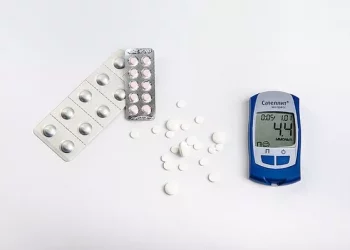Type 2 diabetes is a chronic condition that affects how the body processes blood sugar (glucose). While genetics and other factors play a role in the development of type 2 diabetes, diet is a critical component of managing the disease. Understanding what foods should be limited or avoided can help people with type 2 diabetes maintain healthy blood glucose levels and reduce the risk of complications. In this article, we will explore the foods that are not suitable for individuals with type 2 diabetes and discuss why they should be avoided.
The Importance of a Diabetes-Friendly Diet
Managing type 2 diabetes requires careful attention to dietary choices. When someone has type 2 diabetes, their body either doesn’t produce enough insulin or doesn’t effectively use the insulin it produces, leading to high blood glucose levels. By making the right dietary choices, individuals can help manage their blood sugar levels, maintain a healthy weight, and reduce the risk of complications such as heart disease, kidney problems, nerve damage, and more.
The goal of a diabetes-friendly diet is to stabilize blood sugar levels, improve insulin sensitivity, and prevent blood sugar spikes. It is important to focus on foods that are high in fiber, low in added sugars, and low in unhealthy fats. However, some foods can trigger significant blood sugar spikes, contribute to weight gain, and exacerbate insulin resistance, making them detrimental for those with type 2 diabetes.
Foods to Avoid for Type 2 Diabetes
1. Refined Carbohydrates
Refined carbohydrates are one of the most problematic food groups for individuals with type 2 diabetes. These are carbohydrates that have been processed and stripped of their fiber and nutrients, resulting in a rapid rise in blood sugar levels. Common sources of refined carbohydrates include:
White bread and pasta: Made from refined flour, white bread and pasta are high in glycemic index (GI), meaning they cause blood sugar to spike quickly after consumption.
Pastries, cakes, and cookies: These foods are often made with refined flour and contain added sugars, making them high in both refined carbs and empty calories.
Snack foods like chips and crackers: Many snack foods are made with refined flour and contain unhealthy fats, which can further exacerbate blood sugar imbalances.
Refined carbohydrates lack fiber, which helps slow the absorption of sugar into the bloodstream. As a result, they can lead to rapid increases in blood glucose levels, making them a poor choice for people managing type 2 diabetes.
2. Sugary Beverages
Sugary beverages are among the worst foods for individuals with type 2 diabetes. These drinks are loaded with sugar and have a high glycemic index, which causes an immediate spike in blood glucose levels. They also provide no nutritional value and contribute to excess calorie consumption. Some common sugary beverages include:
Soda: Regular soft drinks contain large amounts of sugar, which can quickly elevate blood sugar levels.
Sweetened tea and coffee drinks: Many commercially available iced teas and coffee drinks contain added sugars and syrups, making them a poor choice for blood sugar management.
Energy drinks and sports drinks: These drinks are often packed with sugar and artificial additives that can cause a rapid rise in blood glucose.
In addition to raising blood sugar levels, sugary drinks contribute to weight gain and increase the risk of developing other health problems like heart disease and high blood pressure.
3. Fried Foods
Fried foods are not only high in unhealthy fats but also tend to have a high glycemic index, which can contribute to poor blood sugar control. Frying food at high temperatures leads to the formation of trans fats, which are known to contribute to insulin resistance. Some common fried foods include:
French fries and potato chips: These foods are often made with refined potatoes and fried in unhealthy oils, making them both high in carbs and fats.
Fried chicken and fried fish: These are often coated in flour or breadcrumbs and fried in oils high in trans fats.
Fried snacks: Items like onion rings, fried doughnuts, and fried pastries contain unhealthy fats that can worsen insulin resistance.
Eating fried foods regularly can contribute to weight gain and poor blood sugar control, increasing the risk of developing cardiovascular disease and other diabetes-related complications.
4. High-Sugar Desserts
Desserts like cakes, pies, ice cream, and candies are not suitable for individuals with type 2 diabetes due to their high sugar content. These foods cause a rapid increase in blood glucose levels, leading to blood sugar imbalances. Additionally, many sugary desserts are high in fat, especially saturated fats, which can exacerbate insulin resistance. Common desserts to avoid include:
Ice cream: While delicious, ice cream is loaded with sugar and unhealthy fats, both of which can increase blood glucose levels and hinder diabetes management.
Cakes, pastries, and donuts: These items often contain refined flour and sugar, along with high levels of unhealthy fats, contributing to weight gain and blood sugar spikes.
Candies and chocolate: Although they may be tempting, sugary candies and chocolate can significantly raise blood glucose levels and provide little nutritional benefit.
Desserts high in sugar and fat are also associated with an increased risk of heart disease, which is already elevated in individuals with type 2 diabetes.
5. Processed Meats
Processed meats, including sausages, hot dogs, bacon, and deli meats, are often high in unhealthy fats, sodium, and preservatives. While they may seem like a convenient source of protein, they can have a negative impact on blood sugar levels and overall health. Some key concerns with processed meats include:
Saturated fats: Processed meats are often high in saturated fats, which can contribute to insulin resistance and increase the risk of cardiovascular disease.
Sodium: High sodium levels in processed meats can raise blood pressure, which is a common comorbidity in individuals with type 2 diabetes.
Preservatives: Many processed meats contain nitrates and nitrites, which are linked to an increased risk of various health issues, including cancer.
Regular consumption of processed meats has been linked to an increased risk of type 2 diabetes, heart disease, and other chronic conditions, making them a poor choice for anyone managing diabetes.
6. Full-Fat Dairy Products
Full-fat dairy products such as whole milk, cheese, and butter are high in saturated fats, which can contribute to insulin resistance and hinder blood sugar control. While dairy can be part of a healthy diet, opting for low-fat or fat-free versions is a better choice for people with type 2 diabetes. Some full-fat dairy products to avoid include:
Whole milk: Whole milk contains higher levels of saturated fat, which can negatively affect insulin sensitivity.
Full-fat cheese: While cheese can be a good source of protein and calcium, full-fat cheese is high in unhealthy fats and calories.
Butter and cream: These fats are commonly used in cooking and baking but contribute to weight gain and poor blood sugar control.
Choosing low-fat or non-fat versions of dairy products can help individuals with type 2 diabetes manage their condition more effectively while still benefiting from the nutritional value of dairy.
7. High-Sodium Foods
Salt is a common ingredient in processed and packaged foods, and excessive sodium intake is linked to high blood pressure, which can exacerbate complications from type 2 diabetes. High-sodium foods include:
Canned soups and vegetables: Many canned products contain added salt to preserve them, which can contribute to elevated blood pressure.
Frozen meals and processed snacks: Many frozen and pre-packaged meals are high in sodium to enhance flavor and extend shelf life.
Salty snacks: Items like pretzels, salted nuts, and chips are often loaded with sodium, making them unhealthy for people with diabetes.
Reducing sodium intake is important for managing both blood glucose levels and overall heart health.
8. Alcohol in Excess
While moderate alcohol consumption may be acceptable for some individuals with type 2 diabetes, excessive drinking can lead to dangerous fluctuations in blood sugar levels. Alcohol can cause blood sugar levels to drop initially and then spike later, leading to unstable glucose control. Additionally, alcohol can contribute to weight gain and increase the risk of liver damage. Some considerations include:
Beer: Beer is often high in carbohydrates, which can raise blood sugar levels.
Sweetened cocktails: Mixed drinks made with sugary mixers can significantly elevate blood glucose levels.
Hard liquor: Consuming hard liquor without food can cause blood sugar to drop rapidly, followed by a spike later.
It is essential to limit alcohol intake and monitor blood sugar levels closely when consuming alcoholic beverages.
Conclusion
For individuals with type 2 diabetes, making the right food choices is crucial for managing blood glucose levels and reducing the risk of complications. Foods that are high in refined carbohydrates, sugars, unhealthy fats, and sodium can disrupt blood sugar control and lead to significant health problems. By avoiding or limiting these foods and focusing on a balanced, nutrient-dense diet, individuals with type 2 diabetes can improve their health and well-being. Always consult with a healthcare provider or a registered dietitian to develop a personalized meal plan that supports diabetes management and overall health.
Related topics:
What Foods Are Good for Blood Sugar?

























